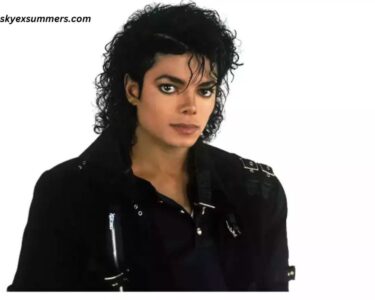Stevie Wonder is one of the most iconic musicians of our time, known for his incredible talent and contributions to music across various genres. His powerful voice, exceptional keyboard skills, and innovative songwriting have left an indelible mark on the industry. However, despite his celebrated career, questions about his blindness have persisted for decades. Many fans and critics alike have wondered, “Is Stevie Wonder really blind?” This article delves into the details surrounding his blindness, its impact on his music, and the misconceptions that have emerged over the years.
Early Life and Vision Impairment
Stevie Wonder was born Stevland Hardaway Morris on May 13, 1950, in Saginaw, Michigan. He was born six weeks premature, which led to a condition called retinopathy of prematurity. This condition occurs when abnormal blood vessels grow in the retina of premature infants, potentially causing blindness. For Wonder, this meant that he lost his sight shortly after birth. By the age of four, he was completely blind.
Despite his disability, Wonder displayed extraordinary musical talent from a young age. He began playing instruments, including the piano, harmonica, and drums, before he was even a teenager. His family recognized his gift, and at just 11 years old, he signed with Motown Records. His early work, including hits like “Fingertips,” showcased not only his vocal prowess but also his ability to compose and perform music that resonated with audiences.
The Myths and Misconceptions
Given his immense success, it is not surprising that questions have arisen about the authenticity of his blindness. Over the years, rumors and conspiracy theories have suggested that Wonder might not be entirely blind. Some have pointed to moments in performances where it appeared he could see, leading to speculation about his disability.
These myths often stem from a lack of understanding about blindness and the various ways it can manifest. For instance, some people who are blind have varying degrees of vision impairment. Wonder himself has discussed how he experiences light and shapes, which may lead some to misinterpret his abilities.
Evidence of His Blindness
Several pieces of evidence support the reality of Stevie Wonder’s blindness. First, his life experiences and the challenges he faced growing up without sight are well-documented. He has spoken openly about his struggles and the ways he adapted to his condition, using his other senses to navigate the world.
Moreover, his performances are marked by a unique style that blends confidence and skill. Wonder often relies on his acute sense of hearing to connect with his band members and audience. His ability to stay in tune and time during live performances showcases his reliance on auditory cues rather than visual ones.
Additionally, various media interviews and documentaries have captured Wonder discussing his blindness in depth. He has described how he visualizes music and how his blindness has influenced his creative process. For Wonder, the lack of sight has not hindered his creativity; rather, it has enriched his understanding of sound and emotion.
Impact on Music
Stevie Wonder’s blindness has played a significant role in shaping his music and artistic identity. His experiences have allowed him to tap into deep emotional wellsprings, giving his songs a profound resonance. Tracks like “Isn’t She Lovely,” “Superstition,” and “Higher Ground” are not only masterful in their composition but also deeply personal and reflective of his experiences.
Wonder has often used his platform to advocate for social justice and humanitarian causes. His blindness has made him a passionate voice for those with disabilities, promoting awareness and understanding. He has spoken about the importance of inclusivity in the music industry and beyond, often emphasizing that talent knows no bounds.
Furthermore, Wonder’s ability to connect with audiences transcends the limitations of his blindness. His music evokes a range of emotions, from joy to sadness, and resonates with people from all walks of life. This emotional connection is a testament to his talent and the depth of his artistry.
Conspiracy Theories and Public Perception
Despite the overwhelming evidence supporting Wonder’s blindness, conspiracy theories continue to circulate. These theories often arise from a misunderstanding of disability and the ways in which people adapt. For instance, some people are surprised by how well he navigates the stage during performances or how he appears to make eye contact with audience members. These observations have fueled skepticism about his blindness.
However, it’s important to recognize that individuals who are blind can develop keen observational skills. They may also have strong spatial awareness, allowing them to maneuver in their environments with remarkable precision. Wonder’s musical genius and stage presence should be viewed through the lens of his extraordinary abilities rather than as evidence against his blindness.
The Importance of Respecting Individuals’ Experiences
The ongoing speculation about Stevie Wonder’s blindness underscores a broader issue regarding how society perceives and interacts with individuals with disabilities. The tendency to question the authenticity of a person’s experience can perpetuate stigma and misunderstanding. It is crucial to approach such topics with sensitivity and respect for the individual’s narrative.
Wonder has often shared his story, providing insight into his experiences as a blind musician. By listening to his perspective and acknowledging his achievements, we can foster a more inclusive and understanding society. Recognizing the challenges faced by individuals with disabilities allows us to celebrate their contributions without reducing them to stereotypes or misconceptions.
Conclusion
Stevie Wonder’s extraordinary life and career exemplify resilience, creativity, and the power of music to transcend barriers. His blindness has shaped his artistry in profound ways, enabling him to connect with audiences on an emotional level. While conspiracy theories about his sight continue to circulate, they do not detract from the reality of his experiences or the impact of his music.
Ultimately, the question of whether Stevie Wonder is really blind has a straightforward answer: yes, he is. But more importantly, his blindness is only one facet of his identity. As we celebrate his contributions to music and culture, it is essential to recognize the richness of his story and the power of his voice in advocating for inclusivity and understanding. In doing so, we honor not just Stevie Wonder, but all individuals who navigate the world differently yet continue to inspire and uplift others through their talents.



